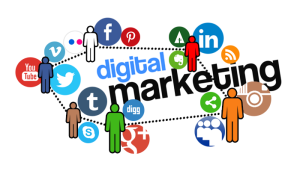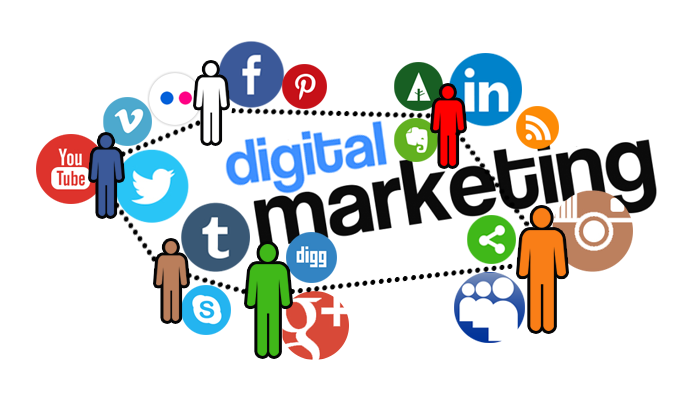The Plan is to Have a Plan
Digital Marketing expert Zoltan Matyas, discusses key elements of a digital marketing plan to succeed online.
 As promised in my previous article I will review the key elements of a well-structured digital marketing plan. This will help those of you paying for such a plan to check you are getting good value.
As promised in my previous article I will review the key elements of a well-structured digital marketing plan. This will help those of you paying for such a plan to check you are getting good value.
I will also list ten questions you should ask before hiring a social media and digital marketing consultant. The digital marketing plan is the blueprint of your digital strategy, and an expert consultant is someone who can make a huge difference between a good or bad digital investment. So both of them are equally important.
Let me take the opportunity to look back at the recent RT Summit in Cancun where I made a presentation about the importance of leveraging the internet in 2018 and using a framework to make your plan work.
What I said during my presentation resonates well with my previous article and can be summarized practically with one phrase:
“The internet is changing the game and if you are not trying to find ways to make this change work for your advantage you run the risk of quickly becoming irrelevant.”
The key is to understand where your customer’s attention is focused and develop a plan to efficiently produce value content to inspire or provoke your desired outcome. And this should be it. The plan is to have a plan!
Just as all great achievements in history started with a good plan, digital marketing is no different. It is actually very similar to a traditional marketing plan using similar aspects and elements but from a digital point of view.
The basic elements of any plan—both on or offline—are as follows:
- Goals and Objectives
- Analyzing the current situation
- Actions
- Available Resources and Budget
- Timing and Measuring results
The difference between a digital marketing plan and any other business plan you prepare are the number of variables you need to know and control. When it comes to going digital in 2018 there are many brand-new variables that are often very hard to control if you are not a social network and digital platform expert.
There are technological aspects, automatization aspects, individual social network rules and functions, available on-line tools and SaaS products built on social networks, audience attention shifts and constant platform algorithm changes that if they are unknown to you and you are not an everyday practitioner it is practically impossible to control.
As I said during my Cancun presentation: “The big question is not if this thing called digital marketing works: it is do you know what to do with it?” I often say to our consulting customers that moving forward with the digital marketing plan you have the following three options:
- Bring in a full-time expert in-house, on payroll, who develops your plan and does the execution for you while working closely with your departments;
- Outsource the plan to a digital marketing expert and get that person to train one of your employees to execute it for you (I often find this the best way);
- Outsource both the plan and the execution and only look at the KPIs and pay the monthly fee.
Depending on the size and goals of your organization you can choose any of the three options and if all is done well, things will start happening.
There another two things to note at this point:
- Any of the three options you choose will cost you money, so prepare for an investment. The good news is that in the digital world everything is math and ROI is quite measurable.
- Digital marketing is not magic, and you will not see results the next day. Most of the plans I have seen are planning to show real progress within 12 months not before.
No matter which of the three options you choose you must choose your expert wisely and well their expertise will define how successful the project will be. In order to help you with that I will share ten key questions BEFORE you decide upon an agency or individual—courtesy of my friend and a great digital marketing mentor, Mr. Pedro Rojas(Twitter@SeniorManager):
- Who were you working with before? How many similar plans have you developed or executed before? –experience is key;
- Do you have experience in my sector? –plans are sector specific. If your person does not understand your business and your values it’s difficult to get the results you really want;
- Can I see social media accounts you manage? –the best indicator! “Don’t listen to what I say! Look at what I do.”
- What did you do before the digital boom? –Pre-digital business understanding and experience is a good indicator;
- What areas of social media are you specializing in? –nobody does everything well. I haven’t seen a person who is a great SEO expert and a great social network expert at the same time. These are complementary skills and there are specialists for each.
- Which social networks shall I use? –if he tells you Facebook and Instagram without analyzing goals and understanding your business you can start wrapping up the chat;
- What tools will you use to measure the effectiveness of the strategy? –an open and transparent response identifying the tools and KPIs is required. There are no secrets here;
- How many posts will you guarantee me per day per week per month…etc —this is a tricky one. If he provides you with a number, he has no idea what this is all about;
- How quickly will I see results? –another tricky one: without some deep analytics of the goals and the actual situation, it is not possible to answer this one. If you get an answer start running.
- For how long should I hire you? –unless you fully outsource everything this should not be no longer than developing a plan (5-8 weeks) and training your staff (4-8 weeks) and to continue doing it with periodical supervision of KPIs.
Wanting more? Here is another list with the key elements of a good digital marketing plan:
- A well defined digital marketing goals and “SMART” Objectives —goals and objectives are not to be mixed up!
- A SWOT analysis—strictly from a digital point of view!
- Further analytics of the: Web/Blog usability and functionality –the key is to eliminate friction;
- Identify the audience, define where their attention is online, their onboarding requirements and which funnel content they respond to best;
- Choosing and augmenting the selection of the social networks in accordance to the available resources;
- Available recourses and budget to see the plan and execution fully funded;
- Definition of the actual strategy and secondary specific “mini” strategies. (Keyword strategy, content marketing strategy and calendar, database strategy, social media campaigns, SEO and SEM strategy, Email marketing strategy, influencer strategy… etc)
- Timing of implementation, monitoring and KPI measurement.
I hope you enjoyed the read and it delivers some really practical value that helps you get started.
If you want to move forward with digital marketing in the imaging aftermarket please feel free to contact Zoltan by email at zoltan@ecow.es or LinkedIn at https://www.linkedin.com/in/zoltanmatyas/







Leave a Comment
Want to join the discussion?Feel free to contribute!